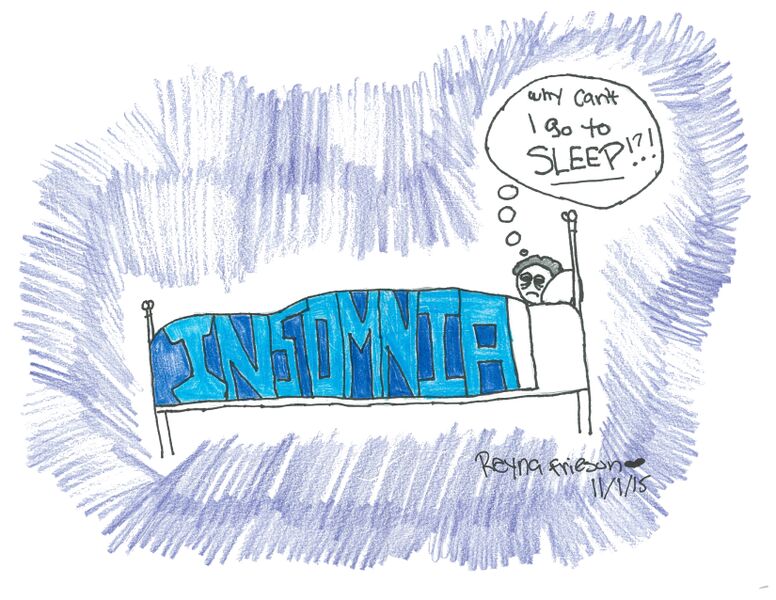Insomnia Impacts Teens
November 16, 2015
There is a new monster lurking the halls of high school and its name is insomnia.
Insomnia is terrorizing this generation because teens aren’t sleeping enough due to their busy schedules, after school activities, and too much homework.
Are you having trouble concentrating in class? Maybe your grades are slipping because you are falling asleep. If yes, then you should keep reading to learn more about insomnia.
I went around the school and reached out to students about the serious matter of insomnia.
I asked some students if they knew the definition of insomnia. In response, one 9th grade girl said “insomnia is a disease or illness.” The 11th grade boy shared his definition of insomnia as “a sleeping disorder which may cause you to have trouble falling asleep.”
They are both correct because insomnia is a symptom of depression which is a mental illness and insomnia is also a sleeping disorder. Two students out of eight students knew what insomnia was, the other 6 students had no idea.
It is important teens become aware of this issue and to be informed about the horrors of insomnia and how without treatment, it can become a serious health problem.
According to http://www.mayoclinic.org, insomnia is defined as persistent problems falling or staying asleep or both.
Some signs of insomnia:
- Difficulty falling asleep at night
- Awakening during the night
- Awakening too early
- Not feeling well rested after a night’s sleep
- Daytime tiredness or sleepiness
- Irritability, depression or anxiety
- Difficulty paying attention, focusing on tasks or remembering
- Increased errors or accidents
- Tension headaches
If you experience any of these symptoms, see your doctor to determine what might be the cause of your sleep problem and how it can be treated.
According to http://m.kidshealth.org, “Studies have found that many teens have trouble falling asleep that early, though. It’s not because they don’t want to sleep. It’s because their brains naturally work on later schedules and aren’t ready for bed.”
According to https://sleepfoundation.org, teens need about 8 to 10 hours of sleep each night to function best. Most teens do not get enough sleep — one study found that only 15% reported sleeping 8 1/2 hours on school nights.
Here are some helpful tips to get a good night rest from https://sleepfoundation.org:
- Keep your room cool, quiet and dark
- Don’t eat, drink, or exercise within a few hours of your bedtime
- Try to avoid the TV, computer and telephone in the hour before you go to bed
- Read a book
- Try taking a bath or shower at night (this will leave you extra time in the morning)
It is very important to get a good rest every night and eat a healthy breakfast so you can be ready for a productive day.











